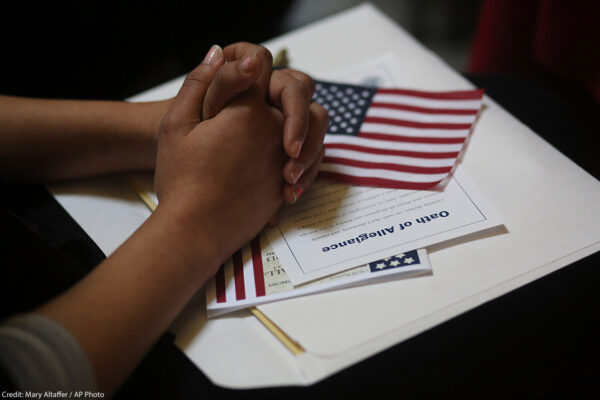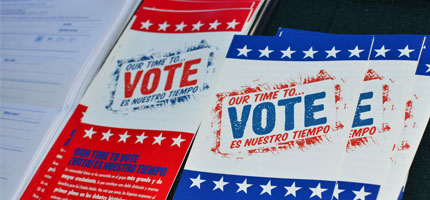Florida
Students for Justice in Palestine at the University of Florida v. Raymond Rodrigues
The University of Florida chapter of Students for Justice in Palestine filed a lawsuit on November 16, 2023, challenging the Chancellor of the State University System of Florida’s order to state universities to deactivate the student group. This order threatens the students’ constitutionally-protected right to free speech and association in violation of the First Amendment. The ACLU and its partners are seeking a preliminary injunction that would bar the Chancellor and the University of Florida from deactivating the UF SJP.
Status: Ongoing
View Case
Visit ACLU of Florida Stay informed about our latest work in the courts.
By completing this form, I agree to receive occasional emails per the terms of the ACLU's privacy statement.
All Cases
31 Florida Cases

Florida
Apr 2025
Immigrants' Rights
FLORIDA IMMIGRANT COALITION v. UTHMEIFER
The American Civil Liberties Union of Florida, ACLU Immigrants’ Rights Project, and Americans for Immigrant Justice filed a federal lawsuit challenging Florida’s new extreme anti-immigrant law, Senate Bill 4C (SB 4C), which authorizes state and local law enforcement to imprison people based on their manner of entering the country — powers the Constitution reserves exclusively to the federal government.
The lawsuit is brought on behalf of the Farmworker Association of Florida (FWAF), the Florida Immigrant Coalition (FLIC), and individual plaintiffs — including longtime Florida residents with pending federal immigration applications and with U.S. citizen family members who rely on their care.
Explore case
Florida
Apr 2025

Immigrants' Rights
FLORIDA IMMIGRANT COALITION v. UTHMEIFER
The American Civil Liberties Union of Florida, ACLU Immigrants’ Rights Project, and Americans for Immigrant Justice filed a federal lawsuit challenging Florida’s new extreme anti-immigrant law, Senate Bill 4C (SB 4C), which authorizes state and local law enforcement to imprison people based on their manner of entering the country — powers the Constitution reserves exclusively to the federal government.
The lawsuit is brought on behalf of the Farmworker Association of Florida (FWAF), the Florida Immigrant Coalition (FLIC), and individual plaintiffs — including longtime Florida residents with pending federal immigration applications and with U.S. citizen family members who rely on their care.

Florida
Mar 2025
LGBTQ Rights
Keohane v. Dixon
On September 30, 2024, the Florida Department of Corrections rescinded its policy regarding treatment of gender dysphoria, which allowed for hormone therapy when deemed medically necessary, as well as access to clothing and grooming standards that accord with one’s gender identity. Under this new policy, grooming and clothing accommodations have been stripped away, and hormone therapy is not permitted unless an exception is deemed constitutionally required. The ACLU brought a class action challenging the policy.
Explore case
Florida
Mar 2025

LGBTQ Rights
Keohane v. Dixon
On September 30, 2024, the Florida Department of Corrections rescinded its policy regarding treatment of gender dysphoria, which allowed for hormone therapy when deemed medically necessary, as well as access to clothing and grooming standards that accord with one’s gender identity. Under this new policy, grooming and clothing accommodations have been stripped away, and hormone therapy is not permitted unless an exception is deemed constitutionally required. The ACLU brought a class action challenging the policy.

Florida Supreme Court
Dec 2024
Capital Punishment
Michael Jackson v. State of Florida
This case gets at the very heart of our right to a jury trial. Traditionally and historically, the right to a jury trial has promised that a person could not be punished unless every single person in a group of one’s peers agreed, by jury vote, that that was the just outcome. However, Florida feels differently. When it comes to the death penalty, Florida is one of only two states that has decided that the “right to a trial by jury” does not guarantee that a person will be sentenced to death by a unanimous jury. Instead, in Florida, a person can be sentenced to die even if four people on their jury think they should live. The state requires just eight of twelve jury votes for a death sentence, which not only disproportionately affects people of color, but the very ideals at the heart of the rights of citizenship.
Explore case
Florida Supreme Court
Dec 2024

Capital Punishment
Michael Jackson v. State of Florida
This case gets at the very heart of our right to a jury trial. Traditionally and historically, the right to a jury trial has promised that a person could not be punished unless every single person in a group of one’s peers agreed, by jury vote, that that was the just outcome. However, Florida feels differently. When it comes to the death penalty, Florida is one of only two states that has decided that the “right to a trial by jury” does not guarantee that a person will be sentenced to death by a unanimous jury. Instead, in Florida, a person can be sentenced to die even if four people on their jury think they should live. The state requires just eight of twelve jury votes for a death sentence, which not only disproportionately affects people of color, but the very ideals at the heart of the rights of citizenship.

U.S. Supreme Court
Sep 2024
Immigrants' Rights
Human Rights
Bouarfa v. Mayorkas
Whether a U.S. citizen gets a day in court to challenge the federal government’s revocation of her spouse’s immigrant visa.
Explore case
U.S. Supreme Court
Sep 2024

Immigrants' Rights
Human Rights
Bouarfa v. Mayorkas
Whether a U.S. citizen gets a day in court to challenge the federal government’s revocation of her spouse’s immigrant visa.

Florida
May 2024
Voting Rights
Hispanic Federation v. Byrd
Of all 50 states, Florida ranks 47th in percentage of its eligible citizens who are registered to vote. Yet, in May 2023, Florida Governor Ron DeSantis signed SB 7050, which bars any noncitizen — regardless of lawful residence status — from working or volunteering for third-party voter registration organizations (3PVROs) who register eligible Floridians to vote. In practice, the law imposes a $50,000 fine on a 3PVRO for each noncitizen who engages in voter-registration work on a 3PVRO’s behalf. This law would silence and put out of business countless community-based groups that rely on both citizens and noncitizens to help eligible voters in their communities participate in their democracy.
Explore case
Florida
May 2024

Voting Rights
Hispanic Federation v. Byrd
Of all 50 states, Florida ranks 47th in percentage of its eligible citizens who are registered to vote. Yet, in May 2023, Florida Governor Ron DeSantis signed SB 7050, which bars any noncitizen — regardless of lawful residence status — from working or volunteering for third-party voter registration organizations (3PVROs) who register eligible Floridians to vote. In practice, the law imposes a $50,000 fine on a 3PVRO for each noncitizen who engages in voter-registration work on a 3PVRO’s behalf. This law would silence and put out of business countless community-based groups that rely on both citizens and noncitizens to help eligible voters in their communities participate in their democracy.
